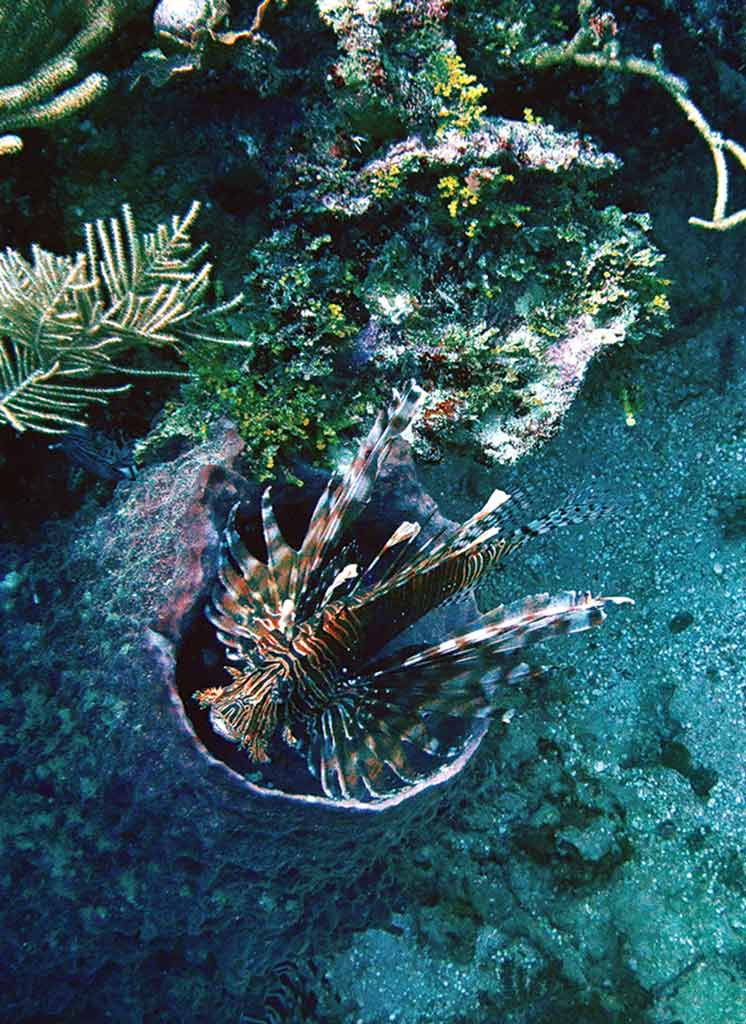The Caribbean region’s coral reef has been battling an invasive, voracious, and predatory fish—destructive enough that it can devastate an entire reef system: the red lionfish (Pterois volitans). Belize is no exception.
Not only do lionfish have the potential to destroy reefs—which are already facing incredible stress—but they’re able to do so at an incredibly frightening pace.Members of the scorpionfish (Scorpaenidae) family, lionfish were first spotted off the Belize Barrier Reef around 2001 but have appeared in greater numbers off the reef and atolls since 2008. Today, it’s rare to go diving and not spot them. They hover above sponges and off walls, and they are easily identified by their long spines, considered venomous. Don’t get too close!
Lionfish hovering over coral. Photo © Lebawit Lily Girma.
Among several theories, it’s generally believed that lionfish, native to Indian and Pacific Oceans, escaped and got into the Atlantic and Caribbean after a lionfish aquarium in Miami was destroyed by Hurricane Andrew in 1992.
Not only do lionfish have the potential to destroy reefs—which are already facing incredible stress—but they’re able to do so at an incredibly frightening pace. They consume prey over half their size and can keep over a dozen victims in their stomachs at a time. They also spawn over 10,000 eggs every five days. The fear is that they will consume native species, like lobsters, snappers, and groupers.
Countrywide, the war against the spread of lionfish is ongoing, led by ECOMAR, a nongovernmental organization in Belize, in partnership with the Belize Fisheries Department. Their efforts have included awareness campaigns, to educate local fishers as well as dive leaders. In addition, lionfish tournaments are held, in collaboration with other organizations, including the Coral Reef Alliance, leading to the capture of thousands per round. Visitors can play their part in preserving the reef and combating this invasive species by signing up for tournaments or even asking for lionfish at restaurants—it is particularly tasty.
ECOMAR also launched an “Adopt A Reef” program, where specific dive and snorkel sites can be adopted by marine guides and dive operators and kept clean of lionfish.
If you’re heading out on your dive with the goal of catching and handling lionfish, you can’t do it solo—head out with a licensed dive shop, as permits are required from the Fisheries Department, and it must all be done legally and safely.
To learn more about the Belize Lionfish Project and how you can help, contact ECOMAR Belize.
Excerpted from the First Edition of Moon Belize Cayes.